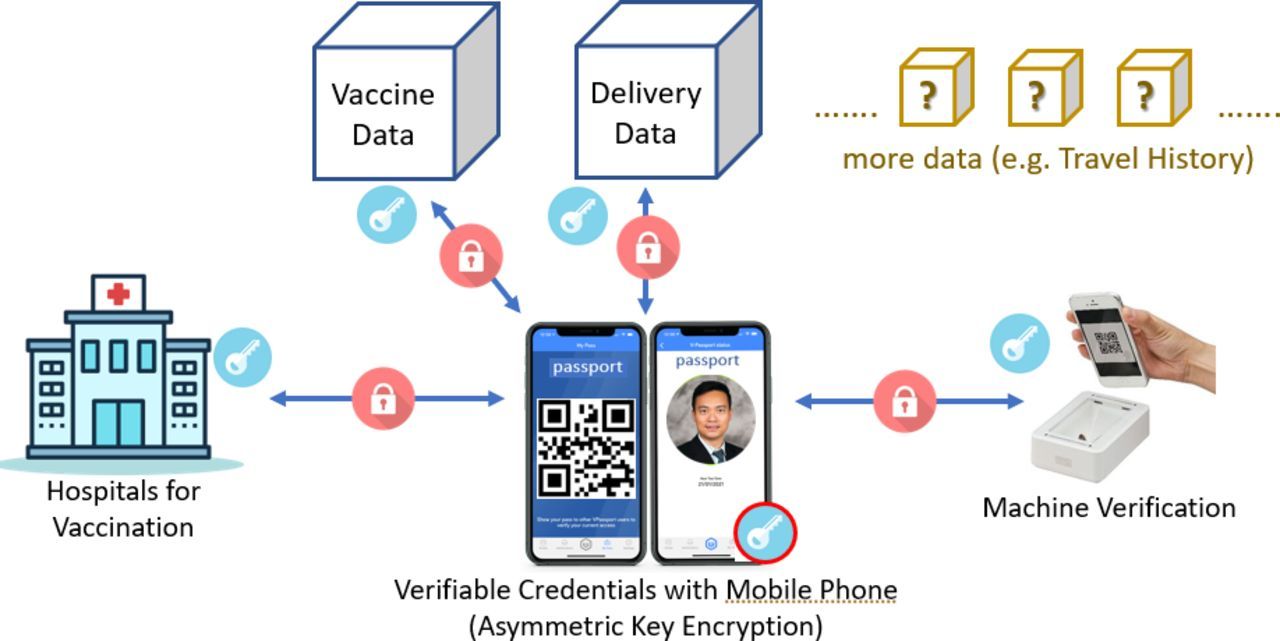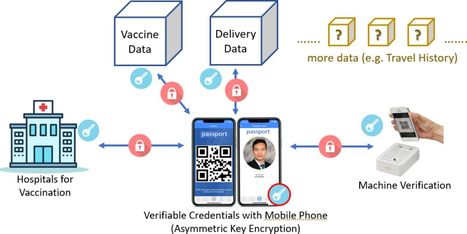health 2021

We discuss the concept of a participatory digital contact notification approach to assist tracing of contacts who are exposed to confirmed cases of coronavirus disease (COVID-19);
The core functionality of our concept is to provide a usable, labor-saving tool for contact tracing by confirmed cases themselves
the approach is simple and affordable for countries with limited access to health care resources and advanced technology.
The proposed tool serves as a supplemental contract tracing approach to counteract the shortage of health care staff while providing privacy protection for both cases and contacts.
- This tool can be deployed on the internet or as a plugin for a smartphone app.
- Confirmed cases with COVID-19 can use this tool to provide contact information (either email addresses or mobile phone numbers) of close contacts.
- The system will then automatically send a message to the contacts informing them of their contact status, what this status means, the actions that should follow (eg, self-quarantine, respiratory hygiene/cough etiquette), and advice for receiving early care if they develop symptoms.
- The name of the sender of the notification message by email or mobile phone can be anonymous or not.
- The message received by the contact contains no disease information but contains a security code for the contact to log on the platform to retrieve the information.
Conclusion
The successful application of this tool relies heavily on public social responsibility and credibility, and it remains to be seen if the public would adopt such a tool and what mechanisms are required to prevent misuse.
This is a simple tool that does not require complicated computer techniques despite strict user privacy protection design with respect to countries and regions. Additionally, this tool can help avoid coercive surveillance, facilitate the allocation of health resources, and prioritize clinical service for patients with COVID-19. Information obtained from the platform can also increase our understanding of the epidemiology of COVID-19.
read this concept paper at https://mhealth.jmir.org/2020/6/e20369
Lire l'article complet sur : mhealth.jmir.org

The COVID-19 pandemic is the greatest public health crisis of the last 100 years. Countries have responded with various levels of lockdown to save lives and stop health systems from being overwhelmed. At the same time, lockdowns entail large socioeconomic costs.
One exit strategy under consideration is a mobile phone app that traces the close contacts of those infected with COVID-19.
Recent research has demonstrated the theoretical effectiveness of this solution in different disease settings. However, concerns have been raised about such apps because of the potential privacy implications. This could limit the acceptability of app-based contact tracing in the general population. As the effectiveness of this approach increases strongly with app uptake, it is crucial to understand public support for this intervention.
Objective: The objective of this study is to investigate the user
acceptability of a contact-tracing app in five countries hit by the pandemic.
Methods: We conducted a largescale, multicountry study (N=5995) to measure public support for the digital contact tracing of COVID-19 infections.
We ran anonymous online surveys in France, Germany, Italy, the United Kingdom, and the United States and measured intentions to use a contact-tracing app across different installation regimes (voluntary installation vs automatic installation by mobile phone providers) and studied how these intentions vary across individuals and countries.
Results: We found strong support for the app under both regimes, in all countries, across all subgroups of the population, and irrespective of regional-level COVID-19 mortality rates.We investigated the main factors that may hinder or facilitate uptake and found that concerns about cybersecurity and privacy, together with a lack of trust in the government, are the main barriers to adoption.
Conclusions:
Epidemiological evidence shows that app-based contact tracing can suppress the spread of COVID-19 if a high enough proportion of the population uses the app and that it can still reduce the number of infections if uptake is moderate. Our findings show that the willingness to install the app is very high. The available evidence suggests that app-based contact tracing may be a viable approach to control the diffusion of COVID-19.
read the study at https://mhealth.jmir.org/2020/8/e19857
Lire l'article complet sur : mhealth.jmir.org

As vaccination programmes are gradually launched by various jurisdictions, post-trial surveillance with real-world evidence is of utter importance for close monitoring of their safety and effectiveness. This paper introduces a vaccine passport concept implemented with blockchain technology. In the following, the methods of contact tracing and vaccine efficacy monitoring with intact personal privacy protection will be discussed.
Vaccine passports with health records
Data are an indispensable and valuable commodity in dealing with global health crises. The COVID-19 pandemic, a global public health emergency as declared by the WHO on 30 January 2020, has highlighted the importance of health data sharing. Data sharing at the early phase of an outbreak enabled healthcare professionals, researchers and policy makers in mastering information required for formulating strategies. Trusted dissemination channels are primarily government official records, peer-reviewed journals and authorised open online databases. Capitalising on these dissemination channels, governments and global scholars share important information for public health measures, from release of full viral genome sequences, pathological features and clinical phases of COVID-19 presentations, to development of diagnostic tests and potential medications, and potential therapeutic and prophylactic agents,to name but a few. Contact tracing is a vital strategy in finding out potential and hidden cases. A convincing showcase was made by Taiwan, where the authorities have used PCR alongside contact tracing in assessing the COVID-19’s transmission dynamics from the initial 100 confirmed cases This approach has much contributed to Taiwan’s success in keeping its health system intact with less than 900 cases even after a year into the pandemic.
Aside from contact tracing for infected patients, daily monitoring among community dwellers could be useful in infection control and resumption of normal social activities. Vaccine passports and digital contact tracing applications (apps) could be widely adopted in recording personal health profiles, contacts, and more importantly vaccination status in later stages. Inevitably, the concept of a vaccine passport led to a heated debate among people from all walks of life over its scientific evidence and ethical concerns.
Application of blockchain
Data sharing as an infection control measure only works on wide acceptance and adoption among citizens. Invariably, data security and integrity would come to the spotlight regarding data access and sharing issues; apart from data storage infrastructure, non-functional requirements such as availability, confidentiality and integrity are also fundamental to data storage, communication and mobilisation. Availability refers to the organised input of required data. Confidentiality is tantamount to authentic data access and usage authorisation, while data integrity ensures data safety against breaches.
Electronic health records and personal health records account for an immense portion of data in this digital era, with a 46% growth in 5 years. Nevertheless, solutions for data protection remain limited, primarily stored via content management system with encryption, in designated host servers. According to the Department of Health and Human Services of the USA, at least 3054 healthcare data infringements were observed from 2009 to 2019, involving leakage of 230 954 151 electronic medical records.A solution for data sharing with robust privacy protection is of paramount importance as well as urgently needed, and blockchain technology seems to be a qualified candidate.
Vaccine passport, as a form of portable health data, with adoption of blockchain technology, can be a promising tool for health monitoring and alerts while protecting personal privacy.
more at https://innovations.bmj.com/content/7/2/337
Lire l'article complet sur : innovations.bmj.com

Patient travel history can be crucial in evaluating evolving infectious disease events. Such information can be challenging to acquire in electronic health records, as it is often available only in unstructured text.
Objective: This study aims to assess the feasibility of annotating and automatically extracting travel history mentions from unstructured clinical documents in the Department of Veterans Affairs across disparate health care facilities and among millions of patients. Information about travel exposure augments existing surveillance applications for increased preparedness in responding quickly to public health threats.
Methods: Clinical documents related to arboviral disease were annotated following selection using a semiautomated bootstrapping process. Using annotated instances as training data, models were developed to extract from unstructured clinical text any mention of affirmed travel locations outside of the continental United States. Automated text processing models were evaluated, involving machine learning and neural language models for extraction accuracy.
Results: Among 4584 annotated instances, 2659 (58%) contained an affirmed mention of travel history, while 347 (7.6%) were negated. Interannotator agreement resulted in a document-level Cohen kappa of 0.776. Automated text processing accuracy (F1 85.6, 95% CI 82.5-87.9) and computational burden were acceptable such that the system can provide a rapid screen for public health events.
Conclusions: Automated extraction of patient travel history from clinical documents is feasible for enhanced passive surveillance public health systems.
Without such a system, it would usually be necessary to manually review charts to identify recent travel or lack of travel, use an electronic health record that enforces travel history documentation, or ignore this potential source of information altogether.
The development of this tool was initially motivated by emergent arboviral diseases. More recently, this system was used in the early phases of response to COVID-19 in the United States, although its utility was limited to a relatively brief window due to the rapid domestic spread of the virus.
Such systems may aid future efforts to prevent and contain the spread of infectious diseases.
read the study at https://publichealth.jmir.org/2021/3/e26719
Lire l'article complet sur : publichealth.jmir.org





